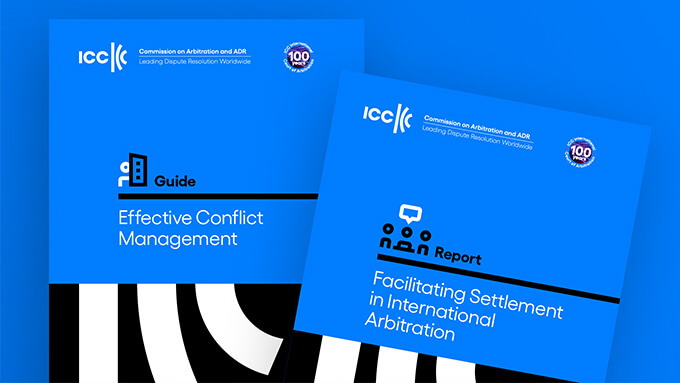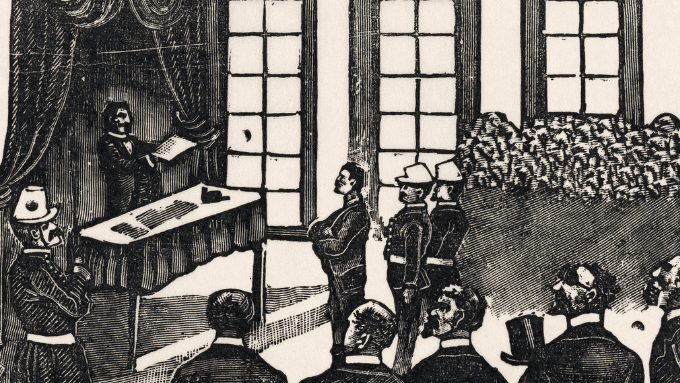Extension of the Arbitration Agreement to the Insurer in terms of Subrogation
Introduction
Arbitration agreements that constitute an exception to the State adjudication are, in principle, valid and binding between parties which conclude arbitration agreements. That being said, in certain cases, the extension of the arbitration agreement to the non-signatory third parties comes to the fore. The extension of the arbitration agreement to the insurer within the scope of the subrogation is one exception.
The Relativity of the Debtor-Creditor Relationship
The debtor-creditor relationship signifies the legal connection between the debtor and creditor, which assures the performance of a certain obligation. In principle, the debtor-creditor relationship is effective and results only between the parties of this relationship. The fact that this relationship results only between the parties is called “the relativity of the debtor-creditor relationship” in the doctrine[1].
According to the principle of relativity, arbitration agreements are binding and valid only for the related parties, as well. In principle, it is not possible for persons who are not a party to the arbitration clause to participate in the arbitral proceedings as a party, or to hinge upon the arbitration clause under the contract. Although this is the general principle, there are certain exceptions to this rule. These exceptions appear to be the extension of the arbitration agreement to non-signatory third parties.
The extension of the arbitration agreement to third parties can be described as an extension of the scope of the arbitration agreement so as to include third parties who are not parties to this agreement, and that these persons’ participation in the adjudication as claimant or respondent[2]. On the one hand, inclusion of third parties in the lawsuit through an extension in certain cases is considered to be fair but, on the other hand, the doctrine considers that an extension is an issue to which arbitrators and courts approach cautiously[3].
Subrogation of the Insurer
One of the cases in which an arbitration agreement is extended to third parties is through subrogation. Subrogation is generally defined as the replacement of someone by another, as are the inheritance of one’s rights by another. The subrogation of the insurer is the legal transfer of the receivable for compensation, considering the amount of the paid insurance indemnity that the insured is entitled to against a third party, for any legal reason for damages that arise upon realization of the risk, to the insurer[4].
Under Turkish Law, subrogation of the insurer is stipulated under Article 1472 of the Turkish Commercial Code. Pursuant to the said provision, the insurer shall succeed the insured upon payment of the insurance indemnity that derives from the realization of the risk within the scope of the insurance. If the insured has the right to sue third parties who are liable for the loss incurred, this right shall pass to the insurer up to the amount it has paid. In this regard, the subject of the succession is the right to claim that the insured is entitled against the third party. This right of the insured against the third party shall be transferred to the insurer upon the payment of the insurance indemnity, and taking into consideration the proportion of the amount paid. For this reason, the subrogation of the insurer is characterized as a legal assignment[5].
The Situation under Turkish Law
The extension of the arbitration agreement to the insurer becomes an issue when there is an arbitration clause in the contract between the insured and the person who has caused the damages. In this case, it is necessary to determine whether the insurer may lean upon the arbitration agreement concluded between the insured and the person who caused the damages, and whether the person who caused the damages is obliged to apply to arbitration with the insurer[6].
The issue with regard to the extension of the arbitration agreement to the insurer often comes to the fore in disputes arising from carriage contracts due to damage of the insured goods. In this regard, the Court of Cassation assesses the issue as to the extension of the arbitration agreement to the insurer in many decisions, while considering the extension of the arbitration agreement in the carriage contract and bill of lading to the consignee.
It is held in one of the decisions of the General Assembly of the Civil Chambers of the Court of Cassation (“GACC”) regarding this issue that the arbitration clause in the bill of lading between the insured and the damaging party shall be extended to the insurer due to the principle of subrogation[7]. The dispute derived from goods that were damaged during sea carriage. In this regard, the insurance company that made payment to the insured regarding the damages that occurred to the goods, filed a lawsuit against the carrier regarding damages; whereas, the carrier requested the court to reject the claim based on the arbitration clause under the carriage agreement concluded between the shipper and the carrier. The GACC, firstly, elaborated upon whether the arbitration clause in the bill of lading shall be extended to the third party consignee within the scope of the carriage relationship. Within this scope, the GACC held that the bill of lading shall be taken into account in the legal relationships between the carrier and the consignee, that the bill of lading referred to the arbitration agreement in the carriage agreement, and that the consignee was bound by the terms of the bill of lading by way of submitting the bill of lading through endorsement, and upon taking delivery of the load. Therefore, the GACC found that the consignee was bound by the arbitration clause, and that the arbitration clause bound the insurance company as the successor of the consignee.
In another dispute of damaged goods during sea carriage, the 11th Civil Chamber of the Court of Cassation held that the arbitration clause in the bill of lading, as stipulated by the carrier, was binding upon the consignee, and that it was binding upon the insurer of the consignee due to the principle of succession[8].
In a case that was subject to a decision dated 2017[9] of the 11th Civil Chamber of the Court of Cassation, a lawsuit was filed against the insurer that had become the successor of the rights of the recipient company by paying the insurance indemnity to the latter, with the general average receivable claim regarding the carriage of goods subject to the freight contract. The First Instance Court held that the provisions of the bill of lading between the carrier and the consignee shall be taken into account, and that the arbitration agreement in the bill of lading was valid for the general average, as well. The Court held that the respondent insurer replaced the insured due to succession by way of making a payment within the scope of the policy. In this regard, the Court accepted the jurisdictional objection considering arbitration, and rejected the claim based on lack of jurisdiction. The said decision was upheld by the 11th Civil Chamber of the Court of Cassation.
In another lawsuit filed against the carrier by the insurer that compensates the loss of its insured with regard to damaged goods during carriage, an elaboration with regard to the content of the arbitration clause was made before the question of the extension of the arbitration clause to the insurer was discussed. In the related dispute, the defendant carrier party propounded on the arbitration clause in the bill of lading, and submitted a jurisdictional objection considering arbitration. The Court found that there was no clear, definite or unfaltering arbitration clause in the bill of lading, and that there was no reference to an explicit and definite date to the charter-party. Thus, the Court held that the jurisdictional objection could not be accepted, and the related part of the decision was approved by the Court of Cassation[10].
The above-mentioned jurisprudence of the Court of Cassation considered the arbitration clause to be valid between the insured and damaging party, to be within the scope of the succession, and that it binds the insurer[11].
Although the Court of Cassation decisions render that the insurer is bound by the arbitration clause in the carriage agreement due to principle of subrogation, it is criticized in the doctrine that the issue as to whether the insurer has the intention to elect arbitration with the damaging party, or whether the damaging party intends to elect arbitration with the insurer was not thoroughly examined. According to this view, the will to apply arbitration between the parties must explicitly and without hesitation be revealed by the parties. In the absence of such will, it is expressed that the extension of the arbitration agreement to the insurer is not possible only due to the principle of subrogation[12].
Conclusion
According to the principle of subrogation, the rights of the insured against the third party shall be transferred to the insurer through the payment of the insurance indemnity, and by taking into consideration the proportion of the payment. In the event that there is an arbitration agreement between the contractual relationship between the insured and the damaging party, the issue as to whether the said arbitration agreement shall be valid and binding for the insurer comes to the fore. In the doctrine, although it is criticized that the existence of the will for arbitration is not examined, the Court of Cassation elaborates in many of its decisions, the arbitration clause that is valid between the insurer and the damaging party within the scope of the subrogation, and holds that the arbitration clause shall be valid and binding for the insurer.
[1] Oğuzman, Kemal / Öz, Turgut, Borçlar Hukuku Genel Hükümler, Istanbul, 2000, p.23.
[2] Köşgeroğlu, Şit, Banu, Yabancı Hakem Kararlarının Üçüncü Kişilere Karşı Teşmili, Gazi Üniversitesi Hukuk Fakültesi Dergisi C. XV, Y. 2011, Sa. 3, p.5.
[3] Esen, Emre, Uluslararası Ticari Tahkimde Tahkim Anlaşmasının Üçüncü Kişilere Teşmili, İstanbul, 2008, p. 85 vd.; Köşgeroğlu, p. 6.
[4] Omağ, Merih Kemal, Türk Hukukunda Sigortacının Kanuni Halefiyeti, Istanbul 2001, p. 35.
[5] Omağ, p.66.
[6] Esen, p. 195.
[7] Decision of the General Assembly of the Civil Chambers of the Court of Cassation numbered 1994/11-765 E., 1995/39 K., dated 1.2.1995.
[8] Decision of the 11th Civil Chamber of the Court of Cassation numbered 2004/189 E., 2004/ 9234 K. dated 04.10.2004. Similarly, decision of the 11th Civil Chamber of the Court of Cassation numbered 2016/8058 E., dated 26.09.2016; decision of the 11th Civil Chamber of the Court of Cassation numbered 2015/12971 E. 2017/240 K., dated 12.01.2017.
[9] Decision of the 11th Civil Chamber of the Court of Cassation numbered 2016/3454 E. 2017/7240 K., dated 13.12.2017.
[10] Decision of the 11th Civil Chamber of the Court of Cassation numbered 2013/15039 E. 2014/17925 K. dated 19.11.2014.
[11] Esen, s. 198.
[12] Esen, s. 201-202.
All rights of this article are reserved. This article may not be used, reproduced, copied, published, distributed, or otherwise disseminated without quotation or Erdem & Erdem Law Firm's written consent. Any content created without citing the resource or Erdem & Erdem Law Firm’s written consent is regularly tracked, and legal action will be taken in case of violation.
Other Contents

Emergency arbitration addresses the need for interim protection before the arbitral tribunal is constituted in institutional arbitrations. Arbitral institutions establish short timeframes to ensure parties can obtain interim relief quickly. For example, the International Chamber of Commerce (“ICC”) requires that the emergency...

International arbitration remains the preferred mechanism for resolving complex cross-border disputes. Yet despite its advantages—neutrality, enforceability, flexibility—arbitration is frequently criticized for being too slow, too expensive, and too procedurally heavy. Often, parties proceed through hearings and...

For arbitral awards rendered in international commercial arbitration to produce legal effects in foreign jurisdictions, they must be subjected to proceedings for “recognition” and “enforcement.” This process is governed by the New York Convention as well as by the provisions of the Law on Private International Law...

Arbitrability, the determination of whether a specific subject matter can be resolved through arbitration, constitutes a fundamental aspect of arbitration within the scope of international commercial dispute resolution. This concept draws a delicate balance between party autonomy—a fundamental principle of arbitration...

The recognition, enforcement, and annulment of foreign court and arbitral awards in Türkiye are processes in which public policy emerges as one of the most critical criteria for review, both in theory and in practice. The Court of Cassation decisions determine the direction of case law regarding the scope and...

As is well known, the action for annulment of objection is a special type of lawsuit regulated under Article 67 of the Turkish Execution and Bankruptcy Law No. 2004 (“EBL”). The primary objective of this action is to nullify a debtor’s objection to execution proceedings. Despite its procedural function of facilitating...

On 16 December 2024, the London Court of International Arbitration (“LCIA”) released its third batch of challenge decisions covering the period from 22 July 2017 to 31 December 2022. The LCIA has also issued a detailed commentary that identifies key legal themes and analytical trends, offering practitioners...

The International Chamber of Commerce (“ICC”) has published its report on the dispute resolution statistics for 2023 (“Report”) , shedding light on the evolving landscape of international arbitration...

Syndicated loans undoubtedly hold a significant position among global financing models. In 2023 alone, 3,655 syndicated loans were provided to companies in the US, with their total value reaching USD 2.4 trillion...

Preliminary attachment refers to the temporary seizure of a debtor's assets to secure a creditor's claim. While it serves as a vital instrument for safeguarding the rights of creditors, it is subject to specific and stringent conditions under Turkish law to prevent any potential misuse...

One of the most important reasons for parties to choose arbitration is the opportunity to freely choose their arbitrators. This freedom granted to the parties also distinguishes arbitration from proceedings before state courts, where the parties are deprived of the power to determine the judges who will conduct the...

The 6th Civil Chamber of the Court of Cassation ruled on October 12, 2022, that national courts have jurisdiction over objections to provisional measures in international arbitration disputes...

The declaration of intent to resolve disputes through arbitration is the fundamental constituent element of an arbitration agreement. To speak of a valid arbitration agreement, the parties' intention to arbitrate must emerge in a way that leaves no room for dispute...

In the wake of the evolving dynamics of commercial transactions, the Netherlands Arbitration Institute Foundation (NAI) announced new arbitration rules . 2024 NAI Arbitration Rules are in force as of 1 March 2024 and will be applicable on proceedings filed on or after this date...

With the global shift to online activities, domain names play a crucial role in identifying businesses. It is more common than ever for a domain name to be registered that is confusingly similar to a trademark or service mark...

The ICC Commission on Arbitration and ADR (“Commission”) published a new guide and report with the aim to increase awareness on alternative dispute resolution (“ADR”) mechanisms to prevent disputes and strengthen the relationship between all stakeholders.The Guide on Effective Conflict Management...

Mergers and Acquisitions (“M&A”) are restructuring of companies or assets through various types of financial transactions, such as mergers, acquisitions, purchase of assets, or management acquisitions. This Newsletter article covers M&A disputes being solved before arbitral tribunals.

In the context of arbitration practice, the principle of revision au fond means that the courts can not examine the merits of a dispute when reviewing an arbitral award. This principle is most commonly encountered in set aside and enforcement proceedings. An arbitral award is evidence of the parties’ willingness...

Under Turkish law, parties may agree on the settlement of disputes that have arisen or may arise, regarding the rights that they can freely dispose of, by arbitration. However, disputes which are not subject to the will of parties, such as the disputes relating to in rem rights of immovables, bankruptcy law...

On 4 September 2020, a research project “Does a Right to a Physical Hearing Exist in International Arbitration?” was launched by an International Council for Commercial Arbitration (“ICCA”) taskforce. Due to the Covid-19 pandemic, many arbitration hearings were held online. Many institutional rules...

Dubai International Arbitration Center amended its Arbitration Rules on 25 February 2022. The 2022 Arbitration Rules were published on 2 March 2022 and came into effect on 21 March 2022. The Rules will be applied to arbitrations that are filed after 21 March 2022; unless parties agree otherwise...

In the aftermath of the Achmea decision, controversies on intra-EU arbitrations continue. Most recently, the Paris Court of Appeal has annulled two arbitral awards rendered against Poland. Meanwhile, the Higher Regional Court of Berlin has refused to declare that an Irish investor’s ICSID claim...


Under Turkish law, the legal remedy that can be applied against arbitral awards is an annulment action. Law on International Arbitration No. 4686 (“IAL”) finds its application area in arbitration proceedings where Turkey is the place of arbitration...

It is well known that following a decision of the Court of Justice of the European Union, problems arose related to arbitration of intra-EU disputes, and particularly arbitration under the Energy Charter Treaty...

Arbitration in corporate law contains controversial elements in many respects, especially the issue of arbitrability. Even in legal systems where these disputes are considered to be arbitrable, uncertainties remain on whether an arbitration clause can be included in the articles of...





Arbitration has benifited from a great increase in the use of technology which has directly effected the conduct of proceedings. More particularly, with digitalization, the way that we conduct arbitration proceedings has been changed to reflect the current needs of parties, with an aim of increasing time...
































































